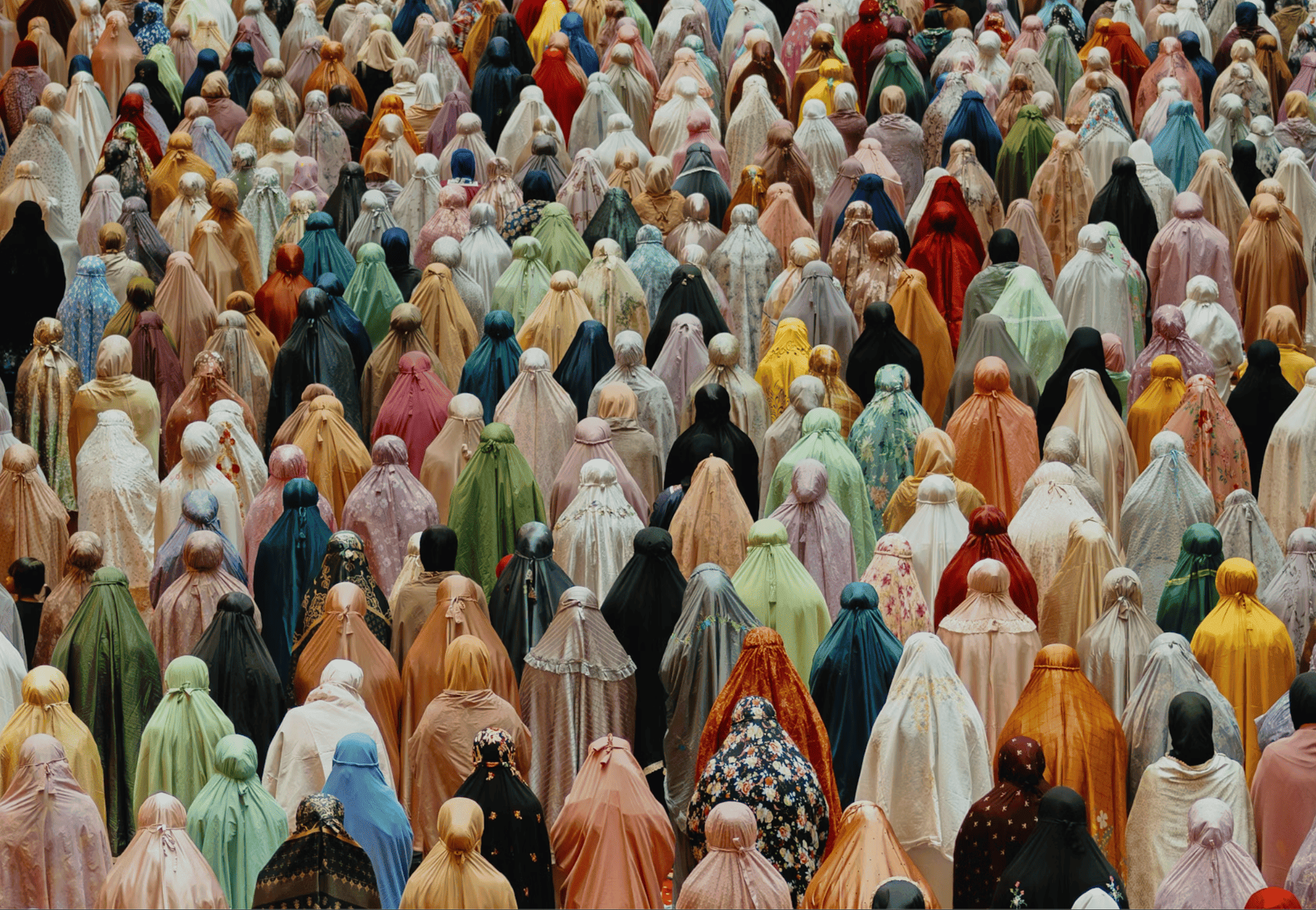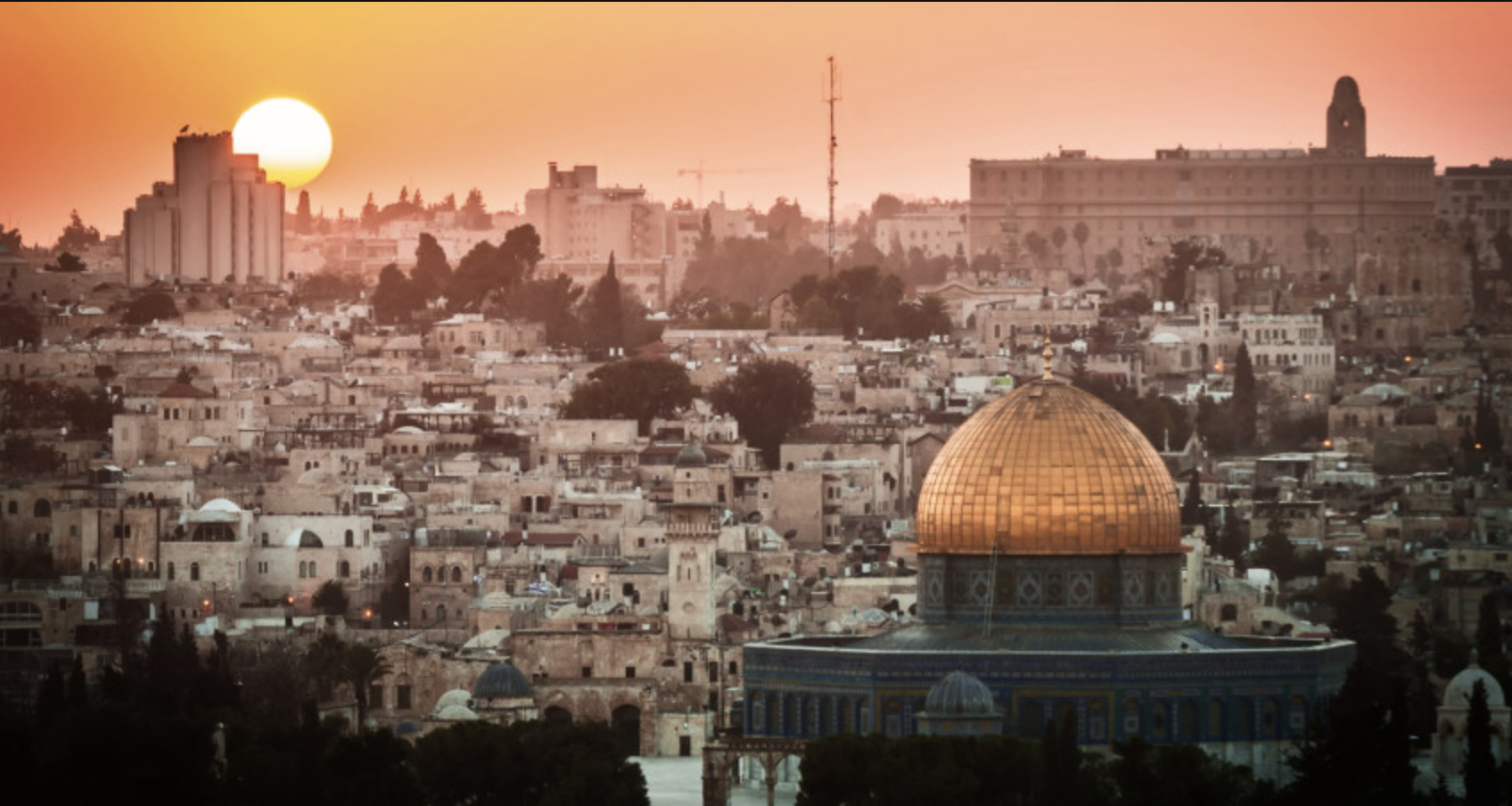This is part of an ongoing series of the explanation of the Major Sins in Islam. Read Part 4 here.
شَهَادَةُ زُورٍ، ثُمَّ عَقٌّ لِوَالِدٍ /// وَغَيْبَةُ مُغْتَابٍ، نَمِيمَةُ مُفْسِدِ
10. False testimony then disobedience to the parents
The backbiting of the one who backbites and the corrupting gossip
Sin 14: False Testimony
Islam is a religion that promotes truth and justice. Allah says,
يَـٰٓأَيُّهَا ٱلَّذِينَ ءَامَنُوا۟ كُونُوا۟ قَوَّٰمِينَ بِٱلْقِسْطِ شُهَدَآءَ لِلَّهِ وَلَوْ عَلَىٰٓ أَنفُسِكُمْ أَوِ ٱلْوَٰلِدَيْنِ وَٱلْأَقْرَبِينَ ۚ إِن يَكُنْ غَنِيًّا أَوْ فَقِيرًۭا فَٱللَّهُ أَوْلَىٰ بِهِمَا ۖ فَلَا تَتَّبِعُوا۟ ٱلْهَوَىٰٓ أَن تَعْدِلُوا۟ ۚ وَإِن تَلْوُۥٓا۟ أَوْ تُعْرِضُوا۟ فَإِنَّ ٱللَّهَ كَانَ بِمَا تَعْمَلُونَ خَبِيرًۭا
O believers! Stand firm for justice as witnesses for Allah even if it is against yourselves, your parents, or close relatives. Be they rich or poor, Allah is best to ensure their interests. So do not let your desires cause you to deviate ˹from justice˺. If you distort the testimony or refuse to give it, then ˹know that˺ Allah is certainly All-Aware of what you do. [Surah an-Nisa, 135]
This ayah teaches us that even if one has to testify against their own parents and family, one should not compromise for their sake. Rather, one should give the correct and just witness even if they are harmed in the process, for the truth presides above everyone and is preferred to everyone.
يَـٰٓأَيُّهَا ٱلَّذِينَ ءَامَنُوا۟ كُونُوا۟ قَوَّٰمِينَ لِلَّهِ شُهَدَآءَ بِٱلْقِسْطِ ۖ وَلَا يَجْرِمَنَّكُمْ شَنَـَٔانُ قَوْمٍ عَلَىٰٓ أَلَّا تَعْدِلُوا۟ ۚ ٱعْدِلُوا۟ هُوَ أَقْرَبُ لِلتَّقْوَىٰ ۖ وَٱتَّقُوا۟ ٱللَّهَ ۚ إِنَّ ٱللَّهَ خَبِيرٌۢ بِمَا تَعْمَلُونَ
O believers! Stand firm for Allah and bear true testimony. Do not let the hatred of a people lead you to injustice. Be just! That is closer to righteousness. And be mindful of Allah. Surely Allah is All-Aware of what you do. [Surah al-Ma'idah, 8]
Narrated Abu Bakra رضي الله عنه: The Prophet (ﷺ) said thrice, "Should I inform you out the greatest of the great sins?" They said, "Yes, O Allah's Messenger (ﷺ)!" He said, "To join others in worship with Allah and to be undutiful to one's parents." The Prophet (ﷺ) then sat up after he had been reclining (on a pillow) and said, "And I warn you against giving a false witness, and he kept on saying that warning till we thought he would not stop. [Bukhari]
On analysing both the ayat above, we see that - the essential message of the ayahof Surah al-Nisa' is: When it comes to doing justice, let nothing affect you, neither your own self, nor your parents, nor your relatives. If the demand of justice happens to be against them, stay with nothing but justice. The essence of this verse from Surah al-Ma'idah is that hostility against an enemy should not affect your sense of justice to the limit that you start working against the demands of justice to harm your enemy.
This is the reason why, by placing 'al-qist' (justice) first in the verse of the Surah al-Nisa', it was said: كُونُوا قَوَّامِينَ بِالْقِسْطِ شُهَدَاءَ لِلَّـهِ... be upholders of justice, witnesses for Allah ... ) and, by placing 'lillah' (for Allah) first in the verse of Surah al-Ma'idah, it was said: كُونُوا قَوَّامِينَ لِلَّـهِ شُهَدَاءَ بِالْقِسْطِ... be steadfast for Allah as witnesses for justice ) - though, both these modes serve the same purpose end-wise. It is obvious that a person who stands for justice will stand for none but Allah, and one who stands for none but Allah will do nothing but justice. But, when it comes to protecting personal interest or favouring friends and relatives, one may be tempted to justify the thought that the act of caring for relationships here is also for Allah. Therefore, by bringing in the word, 'al-qist' (justice) first at that point, the message given was that the concession which is contrary to justice cannot be for Allah. And in Surah al-Ma'idah, where the purpose was to enjoin justice with enemies, the word 'lillah' (for Allah) was brought in first, which took away the chances of sentimental attachments overpowering human nature. The point is, when you stand for Allah, the inevitable outcome should be an equal justice with enemies as well.
In short, both these verses of Surah Al-Nisa' and Surah al-Ma'idah carry two elements of guidance. The first commands full adherence to justice whether dealing with friends or foes. No weakness should be shown on account of any relationship, friendly or hostile. The second instruction given in these two verses is that no one should avoid recording true evidence and stating what is the truth in honesty with Allah, so that the decision makers face no difficulty in arriving at the true, sound and just decision.
Sin 15: Disobeying Parents
This includes disobeying parents, treating and behaving with them in a bad manner, and everything that displeases them. Throughout the Quran we see that Allah has linked worshipping Him and followed it immediately with being dutiful to ones parents. This shows us the immense status of parenthood and also the severity of the sin in disobeying ones parents.
Allah says,
وَقَضَىٰ رَبُّكَ أَلَّا تَعْبُدُوٓا۟ إِلَّآ إِيَّاهُ وَبِٱلْوَٰلِدَيْنِ إِحْسَـٰنًا ۚ إِمَّا يَبْلُغَنَّ عِندَكَ ٱلْكِبَرَ أَحَدُهُمَآ أَوْ كِلَاهُمَا فَلَا تَقُل لَّهُمَآ أُفٍّۢ وَلَا تَنْهَرْهُمَا وَقُل لَّهُمَا قَوْلًۭا كَرِيمًۭا
وَٱخْفِضْ لَهُمَا جَنَاحَ ٱلذُّلِّ مِنَ ٱلرَّحْمَةِ وَقُل رَّبِّ ٱرْحَمْهُمَا كَمَا رَبَّيَانِى صَغِيرًۭا
For your Lord has decreed that you worship none but Him. And honour your parents. If one or both of them reach old age in your care, never say to them ˹even˺ ‘ugh,’ nor yell at them. Rather, address them respectfully. And be humble with them out of mercy, and pray, “My Lord! Be merciful to them as they raised me when I was young.” [Surah al-Isra, 23-24]
Narrated Abu Bakra رضي الله عنه: The Prophet (ﷺ) said thrice, "Should I inform you out the greatest of the great sins?" They said, "Yes, O Allah's Messenger (ﷺ)!" He said, "To join others in worship with Allah and to be undutiful to one's parents." [Bukhari]
One can imagine the level of evil of this sin such that Allah will turn away from them on the Day of Judgement. The Messenger of Allah ﷺ said, "There are three at whom Allah will not look on the Day of Resurrection: The one who disobeys his parents, the woman who imitates men in her outward appearance, and the cuckold. And there are three who will not enter Paradise: The one who disobeys his parents, the drunkard, and the one who reminds people of what he has given them."' [Nasai]
يَمِينٌ غَمُوسٌ، تَارِكٌ لِصَلَاتِهِ /// مُصَلٍّ بِلَا طُهْرٍ لَهُ بِتَعَمُّدِ
11. The false Oath and a person abandoning his prayer
And the one who prays without purification deliberately
Sin 16: Swearing A False Oath
This false oath refers to an oath, after taking which one drowns in sins. This oath includes taking a false oath such that one usurps another persons rights, their property, and similar.
Abdullah bin 'Amr bin Al-'As رضي الله عنه reported, "The Prophet (ﷺ) said, '(Of the) major sins are: to ascribe partners to Allah, disobey parents, murder someone, and to take a false oath (intentionally)'". [Bukhari]
For taking a false oath to be from among the top 4 of the major sins goes to show just how severe a transgression it is, to take the rights of another being.
Another narration reported from Abdullah bin 'Amr رضي الله عنه is: A bedouin came to the Prophet (ﷺ) and asked him: "O Messenger of Allah, what are the cardinal sins?" He (ﷺ) replied, "Associating anything with Allah in worship." The man asked: "(What is) next?" The Messenger of Allah (ﷺ) replied, "Al-Yamin Al-Ghamus." He asked: "What do you mean by Al-Yamin Al-Ghamus?" The Messenger of Allah (ﷺ) replied, "Swearing falsely to usurp the property of a Muslim." [Bukhari]
Here, the Prophet ﷺ explained and highlighted a specific feature of a false oath. Another benefit that we indirectly take from this narration is that whatever gathering we are a part of, we try to learn about that which is good and beneficial for us from there.
Narrated Abdullah (Ibn Mas'ud): The Prophet (ﷺ) said, "Whoever takes a false oath to deprive somebody of his property will meet Allah while He will be angry with him."
Allah revealed:
إِنَّ ٱلَّذِينَ يَشْتَرُونَ بِعَهْدِ ٱللَّهِ وَأَيْمَـٰنِهِمْ ثَمَنًۭا قَلِيلًا أُو۟لَـٰٓئِكَ لَا خَلَـٰقَ لَهُمْ فِى ٱلْـَٔاخِرَةِ وَلَا يُكَلِّمُهُمُ ٱللَّهُ وَلَا يَنظُرُ إِلَيْهِمْ يَوْمَ ٱلْقِيَـٰمَةِ وَلَا يُزَكِّيهِمْ وَلَهُمْ عَذَابٌ أَلِيمٌۭ
'Indeed, those who trade Allah’s covenant and their oaths for a fleeting gain will have no share in the Hereafter. Allah will neither speak to them, nor look at them, nor purify them on the Day of Judgment. And they will suffer a painful punishment.' [Surah Aal Imran, 77]
Al-Ashath came (to the place where Abdullah was narrating) and said, "What has Abu Abdur Rahman (i.e. Ibn Mas'ud) been telling you? This ayah was revealed concerning me. I had a well in the land of a cousin of mine. The Prophet (ﷺ) asked me to bring witnesses (to confirm my claim). I said, 'I don't have witnesses.' He said, 'Let the defendant take an oath then.' I said, 'O Allah's Messenger (ﷺ)! He will take a (false) oath immediately.' Then the Prophet (ﷺ) mentioned the above narration and Allah revealed the verse to confirm what he had said." [Bukhari]
Abu Hurairah رضي الله عنه reported: The Messenger of Allah ﷺ said, “Five sins cannot be expiated: idolatry with Allah, killing a soul without a just case, slandering a believer, fleeing the battlefield, and bearing false witness to consume the wealth of another without right.” [Musnad al-Shamiyyiin]
Sin 17: Abandoning Prayer
This is to abandon the five daily prayers knowingly. It is odd to see that today, Muslims consider drinking alcohol or eating pork as a major sin but completely disregard the sin of the abandonment of the obligatory prayers. It is treated in a very light manner and many a times a person has next to no guilt for missing out on his prayers. They live under the mirage that Allah is al-Rahman and that He will simply Forgive them. Such people anger Allah five times a day whilst trying to please the people around them and chasing the dunya. What use is this dunya and what it contains when its Owner and Master is angry with us? This is such a scary thought if one just stops to ponder over it.
Allah says,
يَـٰٓأَيُّهَا ٱلَّذِينَ ءَامَنُوا۟ لَا تُلْهِكُمْ أَمْوَٰلُكُمْ وَلَآ أَوْلَـٰدُكُمْ عَن ذِكْرِ ٱللَّهِ ۚ وَمَن يَفْعَلْ ذَٰلِكَ فَأُو۟لَـٰٓئِكَ هُمُ ٱلْخَـٰسِرُونَ
O believers! Do not let your wealth or your children divert you from the remembrance of Allah. For whoever does so, it is they who are the ˹true˺ losers. [Surah al-Munafiqun, 9]
مَا سَلَكَكُمْ فِى سَقَرَ
قَالُوا۟ لَمْ نَكُ مِنَ ٱلْمُصَلِّينَ
“What has landed you in Hell?” They will reply, “We were not of those who prayed. [Surah al-Muddathir, 42-43]
Prayer is one of the pillars of Islam. According to all the Muslims scholars, whoever gives it up while denying it is a Kafir (unbeliever). Whoever gives it up and neglects it or does not pray because of laziness; never praying it, is also, according to the chosen correct opinion of scholars, considered as an unbeliever.
The Prophet ﷺ said, “The pact between us and them is the prayer. Whoever gives it up becomes an unbeliever.” [Ahmad and Abu Dawud] The guarantee from Allah for the protection of a person's wealth and blood as well as the promise of forgiveness of sins etc is all made null and void in the Court of Allah when a person abandons the prayer.
It is narrated on the authority of Jabir رضي الله عنه that he heard the Prophet ﷺ saying, "Verily between man and between kufr and shirk is the negligence of prayer." [Muslim]
Abdullah Ibn Shaqeeq said, “The companions of the Prophet ﷺ did not consider the abandonment of any act, with the exception of prayer, as being disbelief.” [Tirmidhi]
Allah says,
أُو۟لَـٰٓئِكَ ٱلَّذِينَ أَنْعَمَ ٱللَّهُ عَلَيْهِم مِّنَ ٱلنَّبِيِّـۧنَ مِن ذُرِّيَّةِ ءَادَمَ وَمِمَّنْ حَمَلْنَا مَعَ نُوحٍۢ وَمِن ذُرِّيَّةِ إِبْرَٰهِيمَ وَإِسْرَٰٓءِيلَ وَمِمَّنْ هَدَيْنَا وَٱجْتَبَيْنَآ ۚ إِذَا تُتْلَىٰ عَلَيْهِمْ ءَايَـٰتُ ٱلرَّحْمَـٰنِ خَرُّوا۟ سُجَّدًۭا وَبُكِيًّۭا ۩
فَخَلَفَ مِنۢ بَعْدِهِمْ خَلْفٌ أَضَاعُوا۟ ٱلصَّلَوٰةَ وَٱتَّبَعُوا۟ ٱلشَّهَوَٰتِ ۖ فَسَوْفَ يَلْقَوْنَ غَيًّا
إِلَّا مَن تَابَ وَءَامَنَ وَعَمِلَ صَـٰلِحًۭا فَأُو۟لَـٰٓئِكَ يَدْخُلُونَ ٱلْجَنَّةَ وَلَا يُظْلَمُونَ شَيْـًۭٔا
Those were ˹some of˺ the prophets who Allah has blessed from among the descendants of Adam, and of those We carried with Nuh ˹in the Ark˺, and of the descendants of Ibrahim and Israel, and of those We ˹rightly˺ guided and chose. Whenever the revelations of the Most Compassionate were recited to them, they fell down, prostrating and weeping. But they were succeeded by generations who neglected prayer and followed their lusts and so will soon face the evil consequences. As for those who repent, believe, and do good, it is they who will be admitted into Paradise, never being denied any reward. [Surah Maryam, 59-60]
Here we see that some of the descendants of some of the Prophets began to become lax with regards to their prayers and also lax with regards to the Shariah of Allah, this brought down the punishment of Allah upon them. Their being related to a Prophet of Allah did not save them from being thrown into the depths of Hell. This goes to show the immense status of the prayers and the severity of transgression that is associated in abandoning or becoming lax with the prayers.
The Prophet ﷺ said, "He who takes care of his five daily prayers (that is, performs them regularly fulfilling all their essentials), it will serve as light, proof and salvation for him on the Day of Judgement. He who fails to take care of it, there will be no light, nor proof or salvation for him on the Day of Judgement. The latter will be in the company of Qarun, Haman and Fir’aun." [Ahmad]
We see that salah protects one from the punishment in the dunya, in the grave, and becomes a source of salvation in the hereafter. What better key to success can we ask for. A key that unlocks the dunya as well as the akhira for us. We also see that the abandonment of salah would lead to a person being raised with the worst of the worst people in history.
Sin 18: Praying Without Purification
This includes praying any type of salah without wudhu be it the fardh, sunnah, nawafil, mustahab, or mubah. For one to pray, they have to be free from both Hadath al-Akbar as well as Hadath al-Asghar. What is Hadath? Hadath is a state of the body which is known as ritual impurity. It is not something that you can see. The fuqaha say that it is a wasf (something that cannot be sensed by any means) which becomes a part of, or in union or attaches with our body. It is something one is informed through the Shariah and this state is lifted through purification aka wudhu or ghusl. On the other hand, najasa or impurity is something that is physical and not an abstract form and hence it is removed. It is a barrier that is preventing a person from Ibadat.
Hadath is of 2 types:
1. Hadath al-Akbar - This is the major state of impurity. It cannot be seen. This is anything that necessitates ghusl and cannot be removed by wudhu or tayammum.
2. Hadath al-Asghar - This is the minor state of impurity. This is that which can be removed by wudhu or tayammum.
Hadath is not necessarily equal to najis. A Muhdith is not considered to be najis. This point needs to be remembered. Khabath is the physical impurities. Ex: Human faeces etc.
A person who prays without purification has 2 issues. Firstly, they are committing a major sin. Secondly, their prayer is invalid and won't be counted and accepted.
Ibn Umar رضي الله عنه narrated that the Messenger of Allah (ﷺ) say: "No prayer is accepted without purification." [Muslim]
Narrated Abu Hurairah رضي الله عنه: The Prophet (ﷺ) said, "Allah does not accept prayer of anyone of you if he does Hadath (passes wind) till he performs the ablution (anew). [Bukhari]
Imam al-Tahawi رحمه الله narrated in Mushkil al-Athar from Abdullah ibn Mas’ud رضي الله عنه that the Prophet ﷺ said, “It was ordered that one of the slaves of Allah be given one hundred lashes in his grave, but he kept asking Allah and pleading until it was made one, and his grave was filled with fire. When it was lifted from him, he woke up and said: ‘Why did you whip me?’ They said: ‘You offered a prayer without having purified yourself, and you passed by one who was being wronged and you did not help him.’”
Imam al-Nawawi رحمه الله said, "The Muslims are unanimously agreed that it is haram for a person who has broken his wudhu to pray, and they are unanimously agreed that his prayer is not valid, whether he is aware that he broke his wudhu or is unaware of that or forgot. But if he prayed because he was unaware of it or forgot, then there is no sin on him, but if he was aware that he had broken his wudhu and that it was haram for him to pray in this situation, then he has committed a grave sin. [al-Majmu']
Jabir bin Abdullah رضي الله عنه narrated that Allah's Messenger ﷺ said, "The key to Paradise is Salat, and the key to Salat is Wudhu'." [Tirmidhi] There are multiple narrations with the same wordings that emphasize this point.
Based on explanation by Sheikh Zafarul Hasan Madani حفظه الله and other scholars.
Previous Article: Explanation of Verses 8-9: https://www.inkoffaith.com/post/tanwir-al-basair-4
Current Article: Explanation of Verses 10-11: https://www.inkoffaith.com/post/tanwir-al-basair-5
Read Next: Explanation of Verses 12: https://www.inkoffaith.com/post/tanwir-al-basair-6
Disclaimer: All material found on InkOfFaith.com is for free and is for information purposes only. All material may be freely copied & shared on condition that it is clearly attributed to InkOfFaith.com as the original source. The views expressed on this site or on any linked sites do not necessarily represent those of InkOfFaith.com













